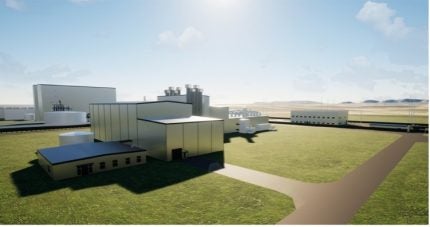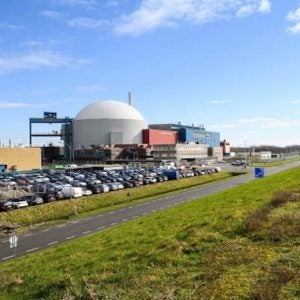
The US Nuclear Regulatory Commission (NRC) has accepted TerraPower’s construction permit application for review, marking the first time in more than 40 years that the NRC has docketed this type of application for a commercial non-light water reactor. Terrapower submitted its application in March. The application applied new technology-inclusive guidance that was recently issued by NRC to ensure consistency, quality, and uniformity of reviews for non-light water reactor applicants.
“We’re excited to have our construction permit application docketed for review by the NRC,” said Jeff Navin, the director of external affairs for TerraPower. “By implementing the licensing modernization project framework, TerraPower is helping to demonstrate a more streamlined approach to licensing non-light water advanced reactors.”
In November 2021, TerraPower, founded by Bill Gates, announced an ageing coal plant owned by US PacifiCorp, in Kemmerer, Wyoming, as the preferred site for the Natrium reactor demonstration project. Natrium is a TerraPower and GE-Hitachi technology and is one of two competitively-selected Advanced Reactor Demonstration Program (ARDP) projects supported by the US Department of Energy (DOE). The Natrium technology features a 345 MWe sodium-cooled fast reactor with a molten salt-based energy storage system. The storage technology is intended to boost the system’s output to 500 MWe for more than five and a half hours when needed to integrate with variable renewable energy sources.
Along with PacifiCorp and GE Hitachi Nuclear Energy, members of the demonstration project team include engineering and construction partner Bechtel, Energy Northwest, Duke Energy and nearly a dozen additional companies, universities and national laboratory partners.
TerraPower has received significant and constant DOE support for its Molten Chloride Fast Reactor (MCFR) project. In 2016, DOE awarded a five-year, $40m cost-share award for continued R&D that resulted in a new public-private MCFR project development partnership including TerraPower, Southern Company, Oak Ridge National Laboratory, the Electric Power Research Institute, and Vanderbilt University. DOE awarded TerraPower $80m in initial funding to demonstrate its Natrium technology.
Southern Company and TerraPower are working on an Integrated Effects Test (IET) to learn how the MCFR technology will scale and behave at larger, commercially relevant sizes. The IET was commissioned and began operating in TerraPower’s Everett, Washington, facility in October 2023.
TerraPower’s demonstration plant, planned for Kemmerer is intended to validate the design, construction, and operational features of the Natrium technology. However, in December 2022, TerraPower postponed the expected start date of the reactor by at least of two years. The company had originally hoped to commission the plant in 2028 using Russian-supplied high-assay low-enriched uranium (HALEU) fuel to get the demonstration unit up and running by 2028. The conflict in Ukraine, however, has made continuing Russian HALEU deliveries unlikely and the US has yet to develop its own supplies. The projected commissioning date is now 2030.






